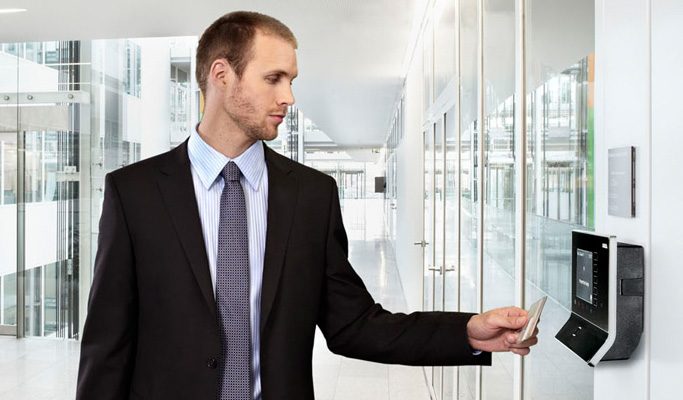The Future of Access Control
Access control systems enable management to control who enters and leaves areas within the premises and when they can do so. According to research by Markets and Markets, the global access-control market is projected to reach a total value of £8bn by 2020, growing at a compound annual growth rate of 10.6%.
Access control technically includes traditional mechanical lock and key, but in the security industry when people talk about access control they are more than likely referring to wireless locks, sophisticated electronic turnstiles, gate & barriers.
With traditional lock and key systems, when a key is lost or stolen the lock must be changed which is an annoyance as well as an expense. The major advantage with an electronic access card versus traditional keys, is that if an electronic access card is lost or stolen the card can be withdrawn immediately, rendering the card inactive. Additionally, if the stolen card is used before there was a chance to inactivate it, it is possible to see when and where the intruder breached security.
Access control is a technology that is ever-improving, with advancements in technology fuelled by the need for improved security measures. In a 2017 conference all the major access control manufacturers gathered to discuss the trends shaping the industry. It was discussed that access control has been until recently still its infancy. Just like CCTV has in the past few years become tremendously more popular. The ability for communication between cameras and software gave CCTV a significant technological advancement.
Credentials were used on a low and slow frequency, with no memory capability. Encryption had not yet evolved and a lot of people still use the 125 KHz technology However, moving forward manufacturers will increasingly use the faster, higher frequency (13.56 MHz) handshake between credential and reader as this speed allows encryption to take place.
An encrypted credential can now be placed on a smartphone, and using NFC or Bluetooth communicate with the reader using a strong set of keys (user-determined) to manage the whole route of the credentials in a trusted manner.
The cloud is having a huge impact within access control and means a paradigm shift because companies are not selling kit but providing a service.
Thorne Access and Security Limited installs, services and maintains a variety of intercoms, GSM intercom systems and electronic locking or access control systems. Thorne’s access security systems protect from unauthorised entry and all intercom systems are installed and maintained to the current British & European Standards and NSI Certificates are provided. Thorne install equipment from a range of leading Manufacturers including Avigilon, Paxton, Urmet, ACT and Videx.
Thorne’s intercom systems for offices, apartments and apartment buildings utilise a wide range of technologies including Biometric Access Control Systems, Mifare, Proximity & RFID. Thorne install electronic digital locks from a single door all the way to a networked 100 door systems, tailoring its access control solutions to suit client’s specific needs. Specialising in networked single site systems controlled via PC right through to multi-site networked systems controlled from a central location, Thorne can install and maintain it all with its team of qualified engineers

